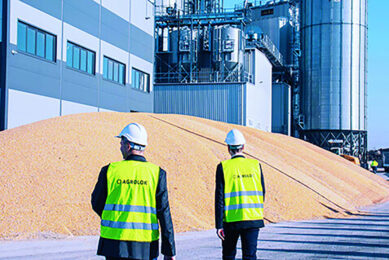Feed mills: A note to integrators

Integrator feed mill personnel are often instructed not to talk to vendors. The thinking is that sales people take up valuable time and that they might steal company secrets. But in building a wall to keep out bad ones, the wall also keeps out the good ones, who could actually provide valuable information that could improve feed mill operations.
I supervised integrator mills but never subscribed to building the wall. Instead, we leaned on vendors, equipment specialists, and industry contacts. We needed to grow, to get better at operations by seeking out the best information and methods.
Challenging current operation standards
We were not afraid of new ideas that challenged our current operation standards. For example, one of our mills was built (prior to my involvement) by a company with very low skill sets. We had improved operations and altered some equipment. But, when a skilled equipment vendor offered to carry out an evaluation, we agreed. When his report came out, our people already knew 90% of what it told us. The final 10% which we didn’t know was critical. He was familiar with a flawed design in the conditioners that we had little way of knowing about. Correcting that flaw was the key to fewer pelleter plugs and significantly higher volumes.
Can’t get new ideas in a vacuum
Now I know that integrators are really good at raising livestock. Also there are trade secrets there that need to be kept. That thinking does not apply as much to feed mills. The mills we have been able to work with agree with this. The experience of the integrator is in livestock and often they are not experienced in feed mills. There are simply too many mill operators who have rarely or never seen a mill other than the one they are working in. It’s not easy to get new ideas in a vacuum such as this. If you have issues or even just questions about how the mill is operating, contact someone in the industry who can help. Send some personnel to a seminar or trade show event to pick up new information and methods. Are you worried that someone will steal your employee? Not if you are treating them well and providing a quality work environment.
Lastly, if you feel insulted by this, please don’t be. Yes, I admit it’s a bit of rant on my part, but hopefully you can also see that it reflects an operational culture that involves progressive learning. You can’t get better at what you do without a bit of change.











